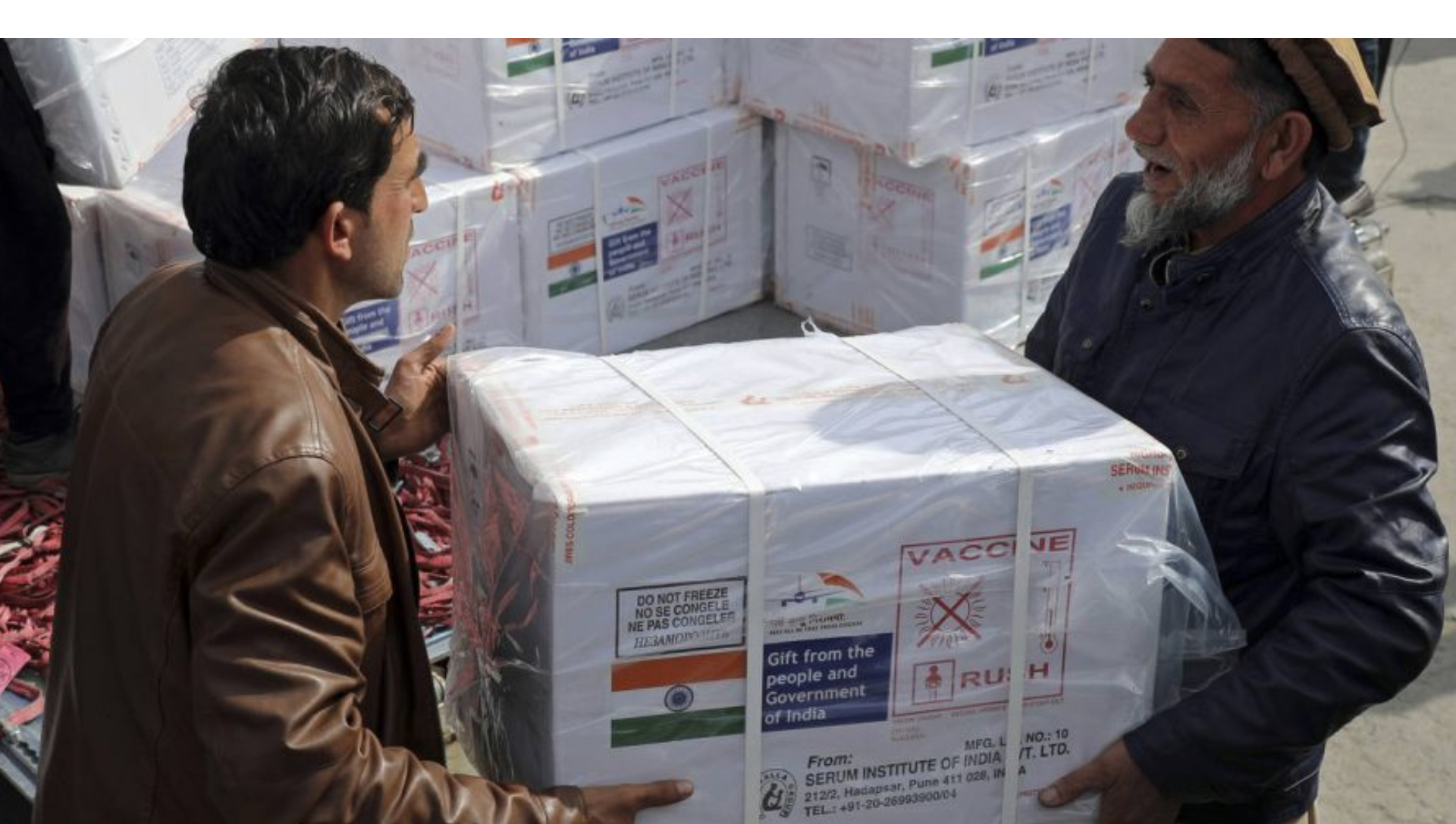

NEW DELHI: The first high-level visit from India to Afghanistan since the Taliban came back to power had set the rumour mills abuzz for a possible reopening of the Indian Embassy in Kabul.
However, the Ministry of External Affairs on Thursday clarified that the visit is to oversee the delivery of humanitarian assistance to the country and is not aimed at resuming the function of the Indian Embassy in Kabul.
Speaking to the media on whether the visit of the high-level delegation is a step towards recognition of the Taliban government in the future, Arindam Bagchi, spokesperson of the Ministry of External Affairs, clarified, “This visit is about humanitarian assistance to the people of Afghanistan. We have been providing humanitarian assistance in various forms. The ongoing visit is to oversee the delivery of this assistance.”
An Indian delegation led by JP Singh, Joint Secretary of Pakistan Afghanistan and Iran (PAI) division of the Ministry of External Affairs is in Kabul to oversee humanitarian aid distribution. The delegation also held talks with the Taliban for the first time in Kabul.
“A multi-member team headed by Joint secretary JP Singh is in Kabul. The team will meet senior members of the Taliban. They’ll also meet representatives of international organisations who are involved in the delivery of humanitarian assistance. This is one focus area,” Bagchi said. “This is the first visit to Kabul but the contacts have been established between India and Taliban earlier,” he added.
“Post 15th of August in the light of the deteriorating security situation in Afghanistan, it was decided to bring back all India based personnel and officials. However, local staff have continued to function for proper maintenance and ensure the upkeep of our premises there,” Bagchi said on being asked about the Embassy in Afghanistan capital.
“The local staff of the Indian missions in Afghanistan are also helping to deliver the aid among the Afghans,” he told reporters.
At the time of the crisis, when about 23 million Afghan citizens were suffering from the food crisis, India donated 20,000 MTs of wheat, 13 tons of medicines, 500,000 doses of COVID vaccines and winter clothing to the war-torn country.
The aid was distributed via India Gandhi Children Hospital, Kabul and WHO and WFP. Besides, India sent one million doses of India-made COVAXIN to Iran to administer to Afghan refugees living in different parts of Iran. India has also assisted UNICEF by supplying almost 60 million doses of polio vaccine and two tons of essential medicines.
“Our aid will go through international agencies. They have a process of reaching out to the neediest persons,” Bagchi said.
During their Kabul visit, Singh and the officials will meet the officials of various international organisations involved in the distribution of humanitarian assistance across Afghanistan to ensure the proper distribution of aid.
The team will also visit places where Indian programmes and projects are being implemented. India has over 400 social infrastructure projects across Afghanistan.
National Security Advisor Ajit Doval urged for an inclusive government to enhance the capability of Afghanistan to counter terror and terror groups during the 4th Regional Security Dialogue in Dushanbe, Tajikistan last week. The dialogue was attended by the top security officials from Russia, Kazakhstan, Uzbekistan, Iran, Kyrgyzstan, Tajikistan and China.